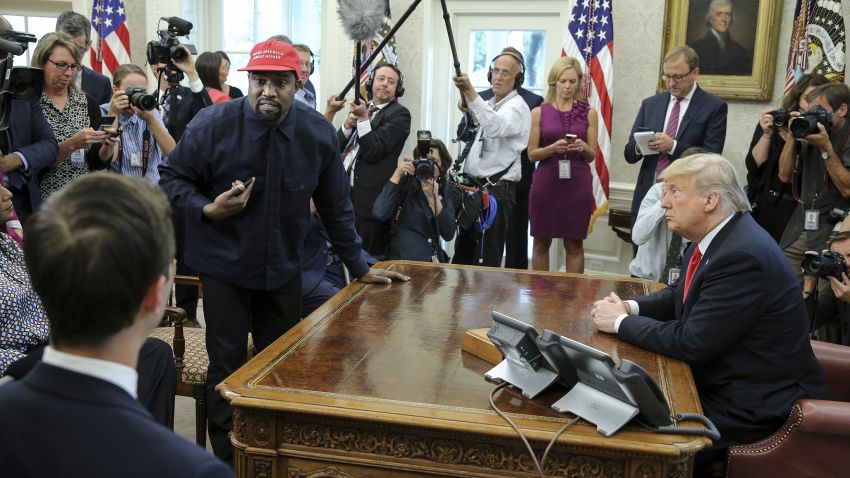FTC's Appeal Challenges Court Ruling On Microsoft's Activision Blizzard Acquisition

Table of Contents
The FTC's Arguments for Appeal
The Federal Trade Commission (FTC) believes the initial court decision failed to adequately address crucial antitrust concerns surrounding Microsoft's acquisition of Activision Blizzard. Their appeal rests on several key arguments.
Concerns Regarding Competition in the Gaming Market
The FTC's primary concern centers on the potential for Microsoft to stifle competition, particularly concerning the immensely popular Call of Duty franchise. They argue that:
- Microsoft acquiring Activision Blizzard gives them control of major gaming titles, potentially excluding competitors.
- This dominance could lead to higher prices, reduced innovation, and less choice for consumers.
- The integration of Activision Blizzard titles into Xbox Game Pass could further disadvantage rival platforms.
The FTC presented evidence suggesting that Microsoft's market power, amplified by this acquisition, could lead to anti-competitive behavior and a less diverse gaming market. Specific data regarding market share and predicted impact on competitor sales is expected to be presented during the appeals process.
The Issue of Cloud Gaming
The burgeoning cloud gaming market is another area of significant concern for the FTC. They argue that Microsoft's control over the cloud gaming infrastructure, coupled with the acquisition of Activision Blizzard's titles, creates a substantial competitive disadvantage for other cloud gaming services.
- Microsoft's Xbox Cloud Gaming service could become dominant, potentially locking out competitors.
- The integration of Activision Blizzard's games exclusively, or preferentially, into Xbox Cloud Gaming could create an insurmountable barrier to entry for competitors.
- This could stifle innovation and limit consumer choice in the rapidly expanding cloud gaming market.
The FTC's concerns highlight the potential for Microsoft to leverage its expanding power in the cloud gaming market to dominate the future of gaming.
Failure of the Initial Ruling to Address Key Antitrust Concerns
The FTC argues that the initial court ruling insufficiently addressed several core antitrust concerns. They believe the court failed to adequately consider:
- The long-term effects of Microsoft's control over key gaming franchises.
- The potential for Microsoft to leverage its market power to harm competitors.
- The implications of the merger for innovation and competition in the broader gaming ecosystem.
The FTC’s appeal emphasizes that the initial ruling overlooked critical elements of antitrust law, specifically pertaining to merger reviews and maintaining a competitive landscape.
Microsoft's Response to the FTC's Appeal
Microsoft has vehemently defended its acquisition, arguing that it will benefit consumers and drive innovation within the gaming industry.
Microsoft's Defense of the Acquisition
Microsoft's defense centers on several points:
- The acquisition will bring new games and content to a wider audience through Xbox Game Pass.
- The deal will foster innovation and competition within the gaming market.
- Microsoft has made commitments to keep Call of Duty available on competing platforms, addressing some of the FTC's concerns.
Microsoft emphasizes its commitment to maintaining a competitive market share, arguing the acquisition won't lead to market dominance.
Potential Impact on the Gaming Industry
The outcome of this appeal will profoundly impact the video game industry.
- A successful appeal could set a precedent for future mergers and acquisitions in the tech sector.
- It could significantly alter the competitive landscape of the gaming market.
- For game developers and publishers, the outcome could influence future business strategies and partnerships.
- Consumers could experience altered pricing, content availability, and platform choices depending on the final decision.
Analysis of the Appeal's Potential Outcomes
The FTC's appeal presents a complex legal battle with far-reaching consequences.
Legal Precedents and Similar Cases
The appeal will likely be judged based on established antitrust precedents and similar cases involving large-scale mergers in the technology industry. Analyzing these precedents is crucial in predicting the likely outcome. The legal arguments presented by both sides will be scrutinized against existing case law regarding anti-competitive behavior and market dominance. Keywords such as "antitrust litigation," "precedent," and "legal analysis" are pivotal in this stage.
Timeline and Next Steps
The appeal process is expected to be lengthy, involving various legal filings, hearings, and potential further appeals. The timeline is uncertain, but the case will likely take several months, if not years, to resolve.
Conclusion
The FTC's Appeal Challenges Court Ruling on Microsoft's Activision Blizzard Acquisition represents a crucial moment for the gaming industry. The FTC's concerns regarding anti-competitive practices, particularly in relation to cloud gaming and the control of key franchises like Call of Duty, are significant. Microsoft's counterarguments emphasize the benefits for consumers and the promotion of innovation. The outcome of this appeal will shape the competitive landscape of gaming for years to come, impacting developers, publishers, and gamers alike. Stay tuned for updates on this crucial FTC's Appeal Challenges Court Ruling on Microsoft's Activision Blizzard Acquisition, as its implications continue to unfold.

Featured Posts
-
 Ufc Kansas City Main Card Odds Breakdown And Predictions
May 04, 2025
Ufc Kansas City Main Card Odds Breakdown And Predictions
May 04, 2025 -
 Churchill Downs Renovations Kentucky Derby Preparations In Full Swing
May 04, 2025
Churchill Downs Renovations Kentucky Derby Preparations In Full Swing
May 04, 2025 -
 Bengal Temperature Plummets Weather Update
May 04, 2025
Bengal Temperature Plummets Weather Update
May 04, 2025 -
 Carney And Trump To Meet Early Next Week At The White House
May 04, 2025
Carney And Trump To Meet Early Next Week At The White House
May 04, 2025 -
 Kanye Wests Post Divorce Life A Look At His Recent Activities
May 04, 2025
Kanye Wests Post Divorce Life A Look At His Recent Activities
May 04, 2025
